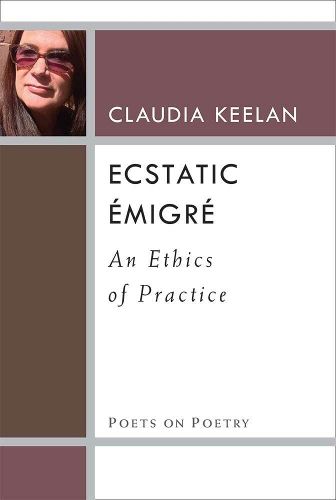Readings Newsletter
Become a Readings Member to make your shopping experience even easier.
Sign in or sign up for free!
You’re not far away from qualifying for FREE standard shipping within Australia
You’ve qualified for FREE standard shipping within Australia
The cart is loading…






Most think of an emigre as one who leaves her native land to find home in another. Claudia Keelan, in essays both personal and critical, enlists poetic company for her journey, engaging both canonical and common figures, from Gertrude Stein to a prophetic Las Vegas cab driver named Caesar.
What if, instead of trying to be somebody, one agreed to be nobody ? What if our culture were less attached to a commodified make your mark ideology, and more informed by the leave no trace signs in national forests? Why not view the concept of possession as a silly dream-why talk of my child, my life, my house? Keelan charts the reality of this freer state in essays on the 2009 recession, Las Vegas, tornadoes, civil rights parades, and her eccentric neighbor. Mapping her own peripatetic evolution in poetry and her nomadic life, she also engages with Christian and Buddhist doctrines on the virtues of dispossession.
Ecstatic Emigre pays homage to poets from Thoreau and Whitman to Alice Notley, all of whom share a commitment to living and writing in the moment. Keelan asks the same questions about the growth of flowers or the meaning of bioluminescence as she does about the poetics of John Cage or George Oppen. Her originality is grounded by the ways in which she connects poetic principles with the spiritual concepts of via negativa demonstrated both in St. John of the Cross and Mahayana Buddhism. In addition, her essays demonstrate an activist spirit and share a commitment to the passive resistance demonstrated in Martin Luther King, Jr.‘s concept of the beloved community and philosopher Simone Weil’s dedication to exile.
In addition to poetry scholars interested in a living poet’s method of reading, this book will interest social and spiritual activists cultivating mindfulness in relation to protest and the living present.
$9.00 standard shipping within Australia
FREE standard shipping within Australia for orders over $100.00
Express & International shipping calculated at checkout
Most think of an emigre as one who leaves her native land to find home in another. Claudia Keelan, in essays both personal and critical, enlists poetic company for her journey, engaging both canonical and common figures, from Gertrude Stein to a prophetic Las Vegas cab driver named Caesar.
What if, instead of trying to be somebody, one agreed to be nobody ? What if our culture were less attached to a commodified make your mark ideology, and more informed by the leave no trace signs in national forests? Why not view the concept of possession as a silly dream-why talk of my child, my life, my house? Keelan charts the reality of this freer state in essays on the 2009 recession, Las Vegas, tornadoes, civil rights parades, and her eccentric neighbor. Mapping her own peripatetic evolution in poetry and her nomadic life, she also engages with Christian and Buddhist doctrines on the virtues of dispossession.
Ecstatic Emigre pays homage to poets from Thoreau and Whitman to Alice Notley, all of whom share a commitment to living and writing in the moment. Keelan asks the same questions about the growth of flowers or the meaning of bioluminescence as she does about the poetics of John Cage or George Oppen. Her originality is grounded by the ways in which she connects poetic principles with the spiritual concepts of via negativa demonstrated both in St. John of the Cross and Mahayana Buddhism. In addition, her essays demonstrate an activist spirit and share a commitment to the passive resistance demonstrated in Martin Luther King, Jr.‘s concept of the beloved community and philosopher Simone Weil’s dedication to exile.
In addition to poetry scholars interested in a living poet’s method of reading, this book will interest social and spiritual activists cultivating mindfulness in relation to protest and the living present.